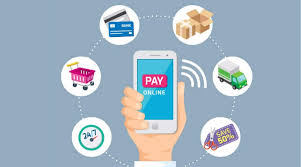Online payment gateways and payment provider integrations
In today's digital age, the seamless facilitation of online transactions has become an indispensable aspect of businesses worldwide. With the increasing shift towards e-commerce and the proliferation of digital services, the need for secure, efficient, and versatile online payment gateways has never been more crucial.

Understanding Online Payment Gateways
Online payment gateways serve as the virtual point-of-sale terminals, enabling the secure transfer of funds between the customer and the merchant in the realm of e-commerce. These gateways act as intermediaries, encrypting sensitive information and ensuring the swift and secure passage of payment data between the customer, the merchant, and the financial institutions involved.
Importance of Seamless Integration
Integrating with best payment gateway in malaysia into an online platform is a pivotal step for businesses aiming to offer a smooth and convenient transaction experience to their customers. Seamlessly integrating a payment gateway into an e-commerce website, mobile app, or any digital platform enhances user experience, builds trust, and ultimately contributes to higher conversion rates.
Diverse Payment Provider Options
The landscape of payment gateways and providers is diverse, offering a range of services tailored to various business models and customer preferences. From traditional credit and debit card transactions to modern e-wallets, cryptocurrency payments, and even buy-now-pay-later options, the array of choices empowers businesses to cater to a broad audience with differing payment preferences.
Factors to Consider in Integration
When selecting and integrating a payment gateway, several factors demand consideration:
- Security: The utmost priority is the security of sensitive financial data. A robust gateway employs encryption and compliance with industry standards like PCI DSS to ensure data protection.
- User Experience: A smooth and user-friendly payment process is critical. The gateway should offer a seamless transition, minimizing steps and complications in the transaction flow.
- Compatibility and Flexibility: Compatibility with various devices and platforms, along with the ability to support multiple currencies and payment methods, enhances the gateway's versatility.
- Cost and Fees: Understanding the fee structure, transaction charges, and any additional costs associated with the gateway integration is vital for effective financial planning.
Integration Challenges and Solutions
While integrating payment gateways can significantly streamline transactions, challenges may arise, such as technical complexities, compatibility issues, or regulatory compliance. Partnering with experienced developers, utilizing APIs (Application Programming Interfaces) provided by payment gateways, and staying updated with evolving regulations can help overcome these hurdles.
Future Trends and Innovations
The landscape of online payments continues to evolve, with constant innovations shaping the industry. Emerging technologies like AI-driven fraud detection, biometric authentication, and the adoption of cryptocurrencies present new avenues for secure and efficient transactions, promising further advancements in the realm of online payment solutions.
Conclusion
The integration of online payment gateways and provider services is a fundamental aspect of modern commerce, offering businesses the opportunity to cater to a global audience while ensuring secure and seamless transactions. As technology advances and consumer preferences evolve, staying adaptable and embracing innovative solutions will remain key in maximizing the potential of online payment systems.

.jpg)
Comments
Post a Comment